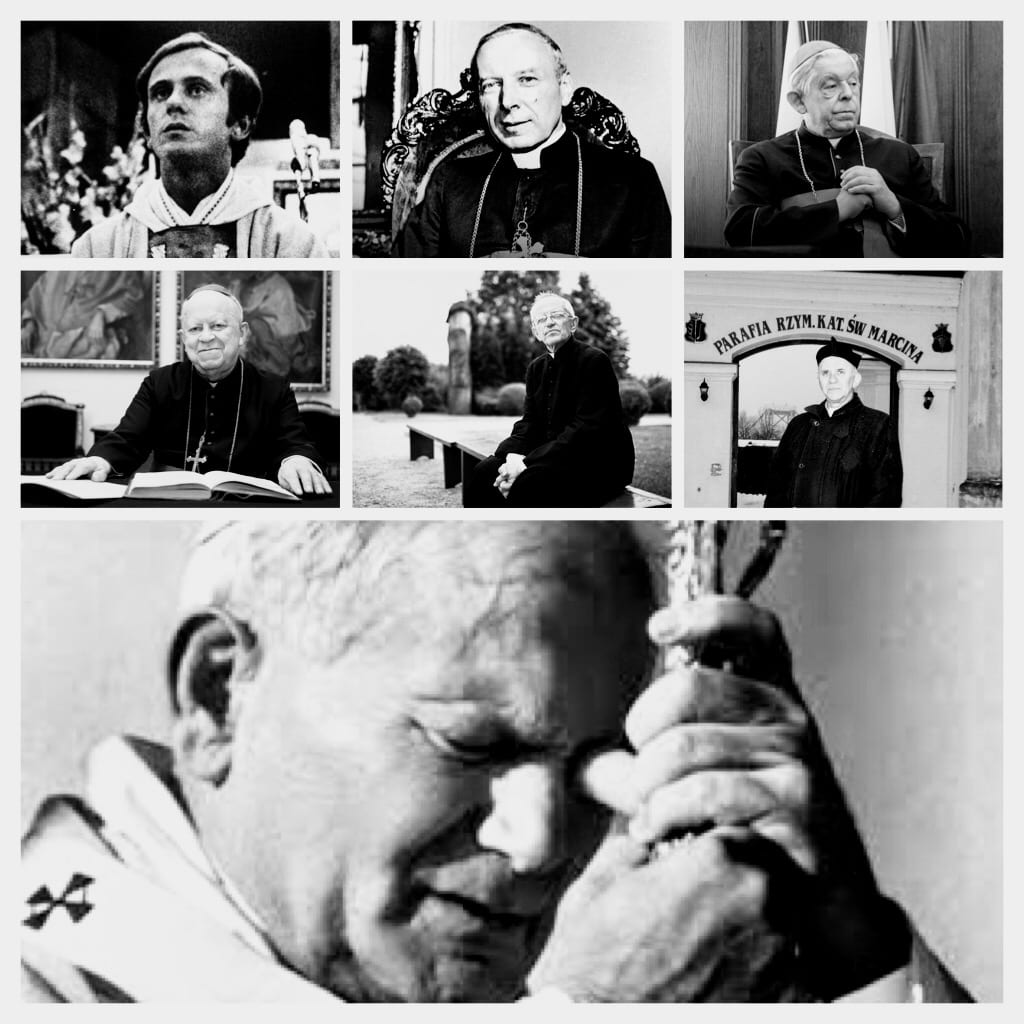On December 12, 1981 at 2:00 pm, General Wojciech Jaruzelski made the decision to impose martial law. On December 13, in the night from Saturday to Sunday, at 0:00 am ZOMO units began a nationwide arrest action of opposition activists. Approx. About 70 thousand soldiers of the Polish Army, 30 thousand officers of the Ministry of Internal Affairs, 1,750 tanks and 1,400 armored vehicles, 500 infantry fighting vehicles, 9 thousand cars and several squadrons of helicopters and transport planes were engaged in carrying out the plan, which had been carefully prepared for a year. 10 thousand officers took part in Operation Firth, the aim of which was to detain and place in pre-prepared arrests and prisons people considered dangerous to national security. It was a suffocating time of terror.
The Catholic Church played an enormous role during martial law, standing up for the nation and influencing the peasants who were forming the foundations of an independent peasant movement. Particularly important at that time were the teachings of John Paul II, Primate Stefan Wyszynski, Archbishop Ignacy Tokarczuk, and Father Jerzy Popieluszko, who was most hated by the communists. "The Church always stands on the side of truth. The Church always takes the side of the wronged. Today the Church stands on the side of those whose freedom has been taken away, whose conscience has been violated. Today the Church stands on the side of the workers' Solidarity, on the side of working people who are often placed in one line with common criminals," Popieluszko said during a sermon at the beginning of martial law.
John Paul II, speaking on the occasion of the Angelus prayer on December 13, 1981, in St. Peter's Square, limited himself to asking for prayers for Poland, recalling his words a few weeks earlier: "Polish blood must not be shed, for too much of it has been spilled, especially during the last war. We must do everything to build the future of our homeland in peace.
Both Cardinal Wyszyński and Cardinal Glemp were aware of the upcoming struggle with the authorities of the People's Republic of Poland. On December 12 in Warsaw, the Primate of Poland appointed a 3-year Primate Social Council (an informational and advisory body, composed of lay people - scholars, social activists, artists). Professor Stanisław Stomma became its chairman. After the Wujek mine massacre, Cardinal Glemp, wishing to tone down the mood, asks: "Do not take up the fight Pole against Pole".
In Przemyśl, too, resistance to the communist authorities began with the circles close to the Church - the Przemyśl archdiocese and Bishop Ignacy Tokarczuk, who as early as in 1980 publicly expressed his support for the demands of the striking workers and later for the Solidarity Trade Union (NSZZ "Solidarność") formed as a result of the Gdansk Agreements. In subsequent years, the Ordinary of the Diocese of Przemyśl said that the "communist law" was lawlessness dressed in the robe of law, destroying everything positive and valuable. In a sermon at Jasna Góra on September 5, 1982, he appealed for help for those repressed by the communists.
One of the members of the first Farmers' Chaplaincy in Poland, operating in Krasiczyn, was the current Speaker of the Sejm Marek Kuchciński. Together with the then parish priest Father Stanisław Bartmiński, under tight police protection, Kuchciński organised retreats and lectures for farmers and Solidarity activists from all over Poland. After 13 December, when there was a shortage of medicines, food and basic necessities, he helped miners and workers from Silesia and Nowa Huta, victims of the pacification in the Wujek mine, the interned and repressed. - When it came to help for Silesia one could always count on him', says Fr Bartminski about the Marshal. Marek Kuchciński took part, among others, in the transfer of internees from Silesia to the Przemyśl diocese, including Maria Jedynakowa who was blackmailed by the SB. He also helped in the escape of an extremely inconvenient person for the authorities of the People's Republic of Poland, invigilated 24 hours a day, interrogated, intimidated, whose files created by the SB have more than 9 thousand pages - Father Czesław Sadłowski, who in the parish in Zbrocza Duża, created, among others, one of the first peasant self-defense movements in Poland. In addition, in the parish there was an illegal radio and printing house, and despite the SB observation, oppositionists were given shelter.



